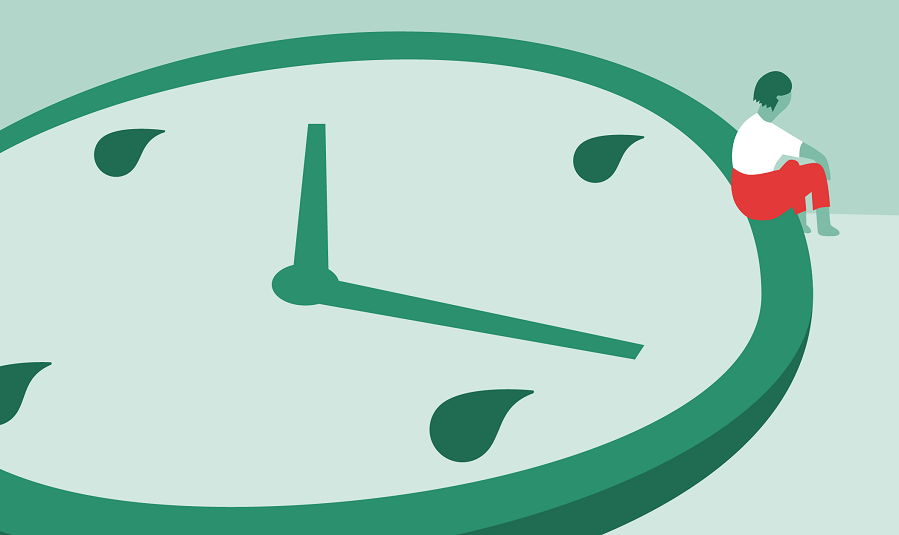
22 Jul 9 Things Women Should Know About Menopause
When you talk about menopause you will mostly hear words like hot flashes, weight gain, mood swings, night sweats, etc. But there are also side effects of menopause as well as some upsides which few people know or talk about. The good thing is that this transition can empower you. Here are some facts that maybe you do not know and also advice as to how you can make this time easier.
1. What is menopause?
Menopause is the time of a woman’s life when her menstruation stops. She is no longer fertile which means that she can no longer become pregnant. It is a normal part of life and just like puberty marks a milestone in your life. It occurs due to the declining production of hormones from the ovaries. According to experts, menopause is confirmed when a woman does not have periods for one year. Although the symptoms may begin many years before, some women can experience them even months or years after the menopause.
2. When will I go through menopause?
Menopause occurs on an average between the age of 51 and 52. A majority of women stop having their periods between the age of 45 and 55. However, the early stages of declining ovary function may start years before menopause in some women and others may continue to have their periods even in their late 50s. The age when a woman will go through menopause is determined genetically but things such as chemotherapy or smoking may accelerate the process of ovary decline which can result in early menopause.
3. What symptoms do the reduced levels of estrogen in the body cause?
Hot flashes are the most common symptom caused during menopause and almost 80 percent of the women experience this symptom. They can occur at any time whether it is day or night. It has been approximated that 50 percent of the women experience moderate to severe hot flashes that can interfere with their daily routine. Many women also experience arthralgia which is the pain in joints and muscles. Mood swings are also a common symptom in many women.
It is difficult to say whether these symptoms are caused due to the alteration of hormones, the process of aging itself, or the circumstances you are in.
4. What are the invisible consequences of menopause that women do not feel?
The declining levels of hormone estrogen from the ovaries during the process of menopause are parallel to the loss of calcium from the bones and hence it leads to the thinning of bones. If this is severe this can cause a substantial decrease in bone density (osteoporosis) which can make you susceptible to spine, hip, or other types of bone fractures. It is not only during menopause but in many women, the accelerated rate of bone density loss may occur during the first few years after they have had their last menstrual period.
5. Will I experience the same symptoms as my mother, sister, girlfriends, etc.?
The symptoms women experience during menopause vary greatly from one to another, even among women belonging to the same family. The age a woman will start with menopause and the rate of the decline in ovary function differ extremely hence making individual management necessary.
6. If I have had a hysterectomy, how will I know when I am going through menopause?
If a woman’s uterus has been removed surgically or she has gone through endometrial ablation (it is a process in which the lining of the uterus is removed to treat heavy menstruation) and her ovaries are not removed then she may not know when she is going through menopause unless she has an onset of hot flashes.
After the age of 50 if a woman is not having any symptoms then a blood test is an option to determine whether the ovaries are still functioning. This is helpful for women who are at risk of osteoporosis. Getting to know the estrogen level status is important to determine the need for bone density assessment.
7. Is hormone replacement a safe option for the management of menopausal problems?
FDA has approved several hormone therapies to treat hot flashes and prevent bone loss. The benefits of these treatments compared to their risks vary depending on how severe the hot flashes are, the severity of bone loss, and the patient’s health status. Estrogen is not something that can make you young, so women should be extremely cautious of those people who are promoting bio-identical hormones that are not approved by the FDA and have no safety or efficiency guaranteed.
8. Are there non-hormonal options for the management of menopausal symptoms?
Many women suffer medical disorders due to which they cannot use hormone replacement or they just choose not to go for this method. Alterations in the lifestyle such as exercise, weight loss, and reduction in room temperature, avoiding foods that aggravate the symptoms, and wearing light cotton clothes are a few ways that have been beneficial for many women. Hot flashes can be treated with treatments like herbal therapies, acupuncture, self-hypnosis, certain low dose antidepressants, and other medicines. For the prevention of bone loss, several FDA-approved medicines can be used.
9. What’s the most important issue I should be concerned about at this stage of life?
Your health should be the most important concern of your life at this critical stage of your life. Not only do the consequences of declining estrogen levels make it necessary for you to take care of your health but there are also various circumstances of life such as demands of your work, raising children, helping with the needs of your old parents plus your aging process makes taking care of your health your utmost priority.
Be aware that people who claim to provide you wellness by offering supplements or non-FDA-approved hormones are only trying to sell their business these products are not supported by science. So the best option is to find an expert physician who can help you with your health at this time.


Sorry, the comment form is closed at this time.